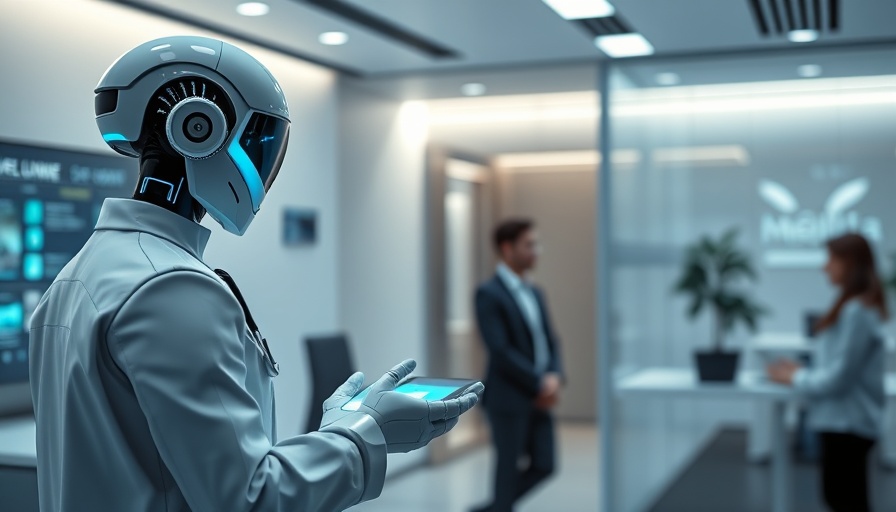
The Digital Transformation of Doctor Appointments
The future of health care is becoming increasingly digital, with innovations reshaping the way patients and providers interact. One pioneering development in this area is Cassie, a virtual medical receptionist designed by Texas A&M University’s Humanate Digital. This AI-powered assistant is making significant strides in enhancing patient engagement while alleviating administrative burdens in the healthcare system.
Cassie's Innovative Features
Cassie stands out from traditional kiosks and chatbots due to its emphasis on emotional responsiveness and human-like interactions. Equipped with facial recognition technology, Cassie can read users’ expressions, adjusting its approach based on the emotional tone of the conversation. “Our goal is to provide a happy digital human to converse with,” said Dr. Mark Benden, one of the founders of Humanate. This feature allows Cassie to smoothly transition from light-hearted joking to a more serious demeanor when needed, creating a more empathetic experience for patients seeking medical assistance.
A Solution to Staffing Challenges
The demand for efficient administrative solutions in healthcare is ever-growing, especially amid staffing shortages. According to Benden, these positions can see turnover rates of 200-300% each year. Cassie aims to tackle this problem by automating time-consuming administrative tasks, allowing healthcare professionals to focus on direct patient care. In doing so, it promises to enhance accessibility and improve healthcare outcomes, particularly in underserved areas that often struggle with staffing challenges.
Future Applications in Healthcare
The potential uses for Cassie extend beyond adult medicine. Humanate is currently developing a cartoon-style avatar named Oliver, tailored to help children navigate medical procedures. This innovative approach shows the versatility of AI technology, ensuring that it can provide compassionate support tailored to various patient demographics.
The Next Steps for AI in Healthcare
The ongoing advancements in AI, particularly with collaboration from leading tech innovators like NVIDIA, suggest that tools like Cassie and Oliver could soon become staples in medical environments. As Benden puts it, “We started this five years ago to enhance interaction quality in remote training. Now, we’re reshaping in-person healthcare experiences.” The successful implementation of such technology could represent a critical shift towards a more efficient and patient-centered healthcare system.
By fostering more humanized interactions and alleviating administrative burdens, virtual receptionists like Cassie could drastically transform the patient journey in healthcare, paving the way for a more connected medical experience in the future.
 Add Row
Add Row  Add
Add 




Write A Comment